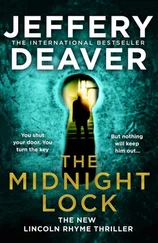“Depends on who’s walking. It’s a trek but there’s one they could make in a day. Snoqualmie Gap. Used to be called Clark’s Gap. After Lewis and Clark. But got itself changed to Snoqualmie. That’s a word, Indian word. Means ‘fierce tribe.’ Some folks were pissed off they changed it. You can go too far, this PC crap.” He’d looked Shaw over, perhaps registering “Caucasian” and guessing it was okay to offer the comment — not knowing Shaw did in fact have some Native American in him. “Funny thing is, don’t make no difference either way.”
Shaw didn’t understand. He shook his head.
“Lewis and Clark never got here, and the Snoqualmie River’s nowhere near either. So might as well call it New York, Los Angeles or Podunk. Maybe those boys were headed there.” He frowned briefly. “You know, there’s this place in the mountains outside of it — Snoqualmie Gap. Some people ask for directions.”
“Place?”
“This retreat.”
“Separatist thing? Neo-Nazis?”
“Don’t think so. More, some New Age bullshit. Hippies. You’re too young.”
Shaw had been born in the Bay Area long after flower children and the Summer of Love, 1967. But he knew about hippies.
He looked at a map on the wall. He saw Snoqualmie Gap, a small town, about ten miles from Hope’s Corner. Quite a hike in the mountainous terrain.
“Where’s the retreat?”
The clerk squinted. “About there, I guess.” Tapping a valley in the mountains beside a large lake. Shaw estimated it was six or seven miles from Snoqualmie Gap, accessed via a state route and then the narrow and eerily named Harbinger Road.
Walking, it would take them three to four hours to get to Snoqualmie, and another three to get to the retreat, if that’s where they were headed.
“I didn’t see much traffic on the way here. Going that way, to Snoqualmie, could they hitch a ride?”
“Somebody could. They couldn’t.”
“Why’s that?”
“That guy with your friend’s son? I wouldn’t pick him up on a dare. Something about his eyes.”
Shaw thanked the man and started for the door.
“Hey, mister?”
He turned.
The clerk was frowning. “You forgot to pay your bill.” He looked at the check and said, “That’s eleven twenty-eight you owe me.”
In ten minutes Colter Shaw’s job was over.
He found Adam Harper and Erick Young on Old Mill Road, about two miles from Hope’s Corner and still a ways to go to Snoqualmie Gap.
Shaw stopped on a narrow shoulder and looked down, to his left. Here the road was made up of switchbacks because of the dizzyingly steep grade. It descended to a valley in which a river glistened, blue and silver. On the other side, the road rose into the hills once more.
The young men were fifty feet below Shaw. They were trudging along like college kids on a weekend hike. Each had a backpack. Adam was holding a large refillable water bottle. Erick pointed to the steep uphill climb they’d have once they crossed the bridge. Adam said something and Erick nodded.
Strolling, not a care in the world.
Shaw carefully examined them; he couldn’t see the profile of a pistol, or a protruding grip, in the pockets of either.
Erick dug into his backpack pocket and pulled out a plastic bag. Jerky, Shaw believed. He ate a piece and offered some to Adam, who declined with a shake of his head. The suspects came to the end of the straight portion of the switchback and followed the road, curving to the left. Shaw watched them emerge. They got halfway along this stretch of road and stopped where it swelled with a broad shoulder on a cliff. It was a substantial drop; boulders had been placed here to serve as guardrails. The two sat down on one of these, the size of a park bench. Erick ate more jerky. Adam made a phone call.
Shaw examined his Rand McNally map and discovered that they were in Hammond County. He placed a call to the sheriff’s office. He was connected to the sheriff himself, a man named Welles, and explained about the crime in Pierce County and told him that he’d just found the two suspects. The sheriff hesitated a moment, taking in the information, then asked for Shaw’s location.
“I’ll be at the intersection of State Route Sixty-four and Old Mill Road.”
“Okay, sir. Let me check this out and we’ll be there soon.”
Shaw turned the Kia around and drove back up Old Mill to the intersection, about a half-mile away. He preferred to meet the law enforcers in a place separate from Erick and Adam’s actual location. He didn’t know the procedures — or style — of the deputies here and didn’t want them blustering up, sirens wailing, acting all tough cop. That might spook the pair into shooting... or taking to the brush. If that happened it would be a true chore to track them, especially if they split up. And, equally worrying, this was dangerous territory: steep cliffs, hazardous slopes, torrential rapids. The river below was beautiful. Shaw knew it would be cold as January metal and guessed the speed of the current was twenty miles per hour.
Shaw parked where Old Mill and the state route met and soon three official vehicles and one private — a mud-stained SUV — arrived. Shaw and the men climbed out. Five of them. They varied from youthful twenties to middle age. Welles, the sheriff, was around fifty, rotund. Blond hair and — curiously, given the shade of the strands on his head — his eyes were brown as aged leather.
All wore gray uniforms, except the tallest, a lean and bony bearded man in green-and-black camo, his dark tan baseball cap sitting backward on his head. He radiated military and, at early forties, he might’ve recently retired. You serve twenty and you’re out. A faded name tag sewn onto his jacket was crooked, cut from one uniform and stitched onto his hunting garb. DODD, J. The SUV was his. He appeared to be civilian, though Shaw noted a blue light affixed to the Pathfinder’s dashboard. While the others gazed at Shaw and his sport coat and city shoes with curiosity, Dodd’s gaze was expressionless.
Welles approached. A paw of a hand embraced Shaw’s. “You BEA?”
“No.” Shaw had never considered being a bond enforcement agent, whose days were usually spent tracking down bail-jumping druggies — men, usually, who were stupid enough to hide out at their parents’ or girlfriend’s bungalow.
He explained about the reward.
This raised an eyebrow or two.
He expected the next question to be “How much?” But that query wasn’t forthcoming. Instead, one of the deputies asked, “You don’t bring ’em in yourself? Why call us?” A solid, jowly man, Welles had a fitting voice, like distant thunder.
“I don’t apprehend. I only find the whereabouts. The rest is up to the person or agency offering the reward, or local law enforcement.”
The sheriff said, “My, that sounds formal.”
“Say, Sheriff, we get any?” one of the younger deputies asked.
“Any what?”
“Of that reward?”
“Tell me, Bo: you didn’t go and find anybody, did you?”
“Just asking.”
“Now, now.” To Shaw, Welles asked, “You armed, sir?”
“I am. I’ll show you my ticket.” He slowly extracted his wallet and displayed a Utah concealed carry permit, which was recognized in Washington State.
“Do me a favor and keep your piece tucked away, will you?”
“Sure. My job’s pretty much done here.”
Another deputy: “You tracked ’em all the way here from Gig Harbor?”
“I did.”
Welles said, “I checked with the Pierce County public safety chief. He confirmed they’re fugitives and there’s a reward. He didn’t know about you.”
“I was in touch with a detective there, not the sheriff. Chad Johnson.”
Читать дальше
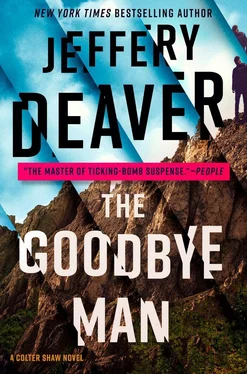
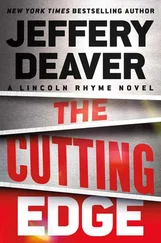




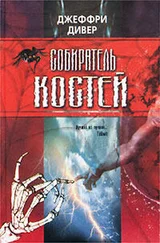
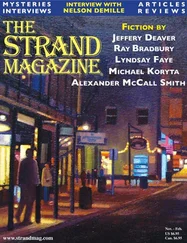
![Джеффри Дивер - Where the Evidence Lies [A Lincoln Rhyme Short Story]](/books/403782/dzheffri-diver-where-the-evidence-lies-a-lincoln-r-thumb.webp)

